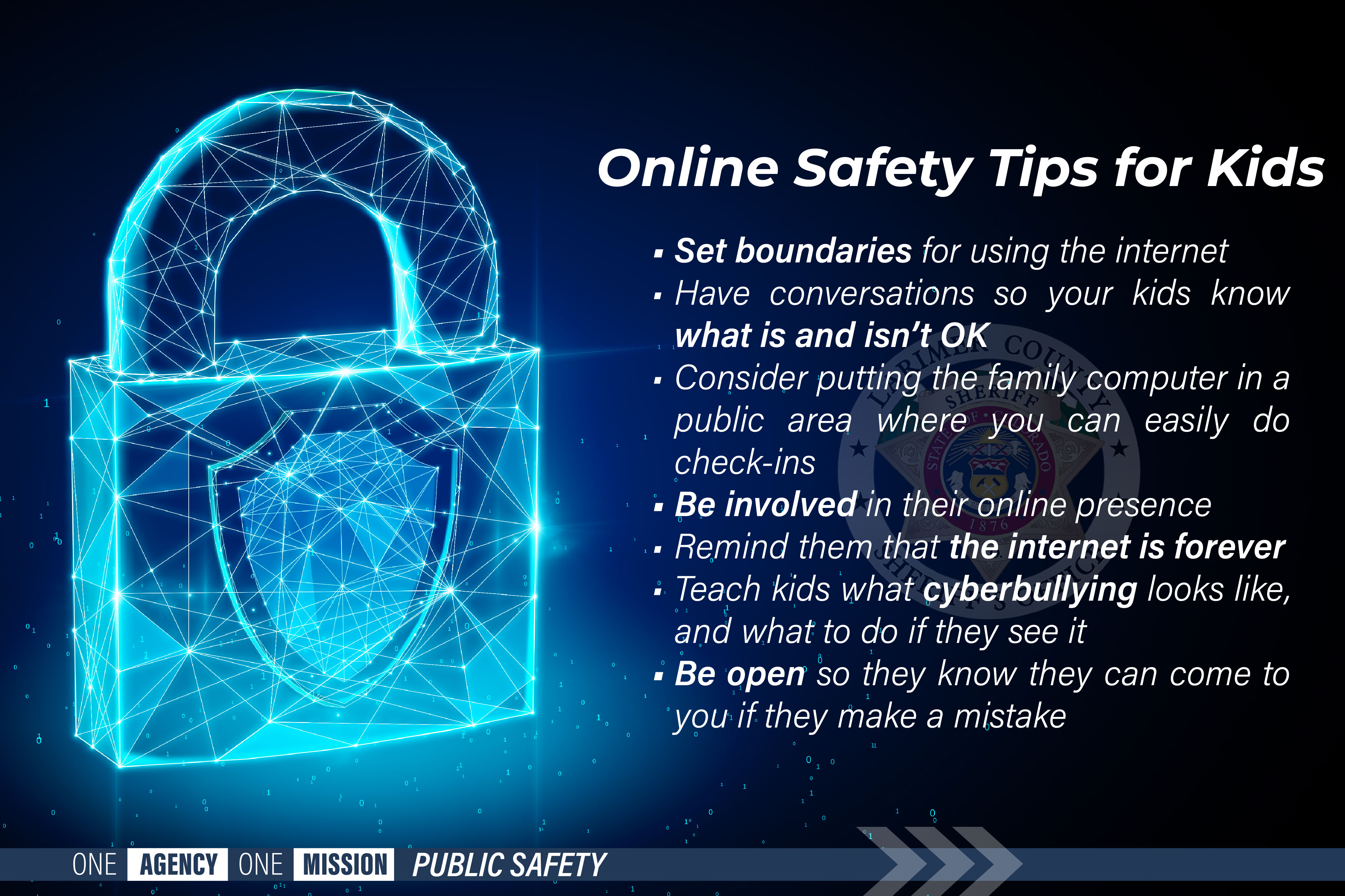Online Safety Tips for Kids
- Set boundaries for using the internet
- Have conversations so your kids know what is and isn't OK
- Consider putting the family computer in a public area where you can easily do check-ins
- Be involved in their online presence
- Remind them that the internet is forever
- Teach kids what cyberbullying looks like, and what to do if they see it
You may think that because your child is only playing a game online, or researching a term paper, or typing a homework assignment, they can't cause any harm.
- Be open so they know they can come to you if they make a mistake"
But what if, when saving their paper, they delete a necessary program file?
Or what if they unintentionally visit a malicious web page that infects your computer with a virus?
These are just two possible scenarios when children have unfettered access to computers.
Mistakes happen, but children may not realize what they've done or may not tell you what happened because they're afraid of getting punished. (CISA)
Did you know...
- 27% of children 7-17 years old have encountered harmful content online.
- About 41% of people have experienced at least one negative outcome due to their online presence.
- One in three children have received a link to a malicious site.
- 62% of children who experience online bullying do not report the incident to their parents.
- Approximately 20% of websites aimed at children have at least one chat feature.
Here are some easy ways to to keep your kids safe online:
Parents, set ground rules for kids online. Familiarize yourself with the apps and games they frequent, and research the parental controls available
The best tools to keep your kids safe online are knowledge and conversation. Have discussions about what is ok and what isn’t, and be involved and take an active interest in what your child is doing online- challenge them to a duel playing their favorite online game, or do research for their homework together.
Teach your kids to spot common tactics used by online offenders. Remind them that if someone ever tells your child not to tell anyone, they should tell you right away.
Consider putting the family desktop, gaming console or workstation where kids have to use the computer in a place where you have quick visual access to the screen for easy check-ins.
If your child comes to you with concerns or to tell you they sent a picture they shouldn’t have, respond in love and not anger. Then contact your local law enforcement agency for help identifying the next steps.
A good rule of thumb:
If you don’t want your grandma to see the picture, you shouldn’t share it online or in a text.
You can’t control what the person you send it to does with it.

